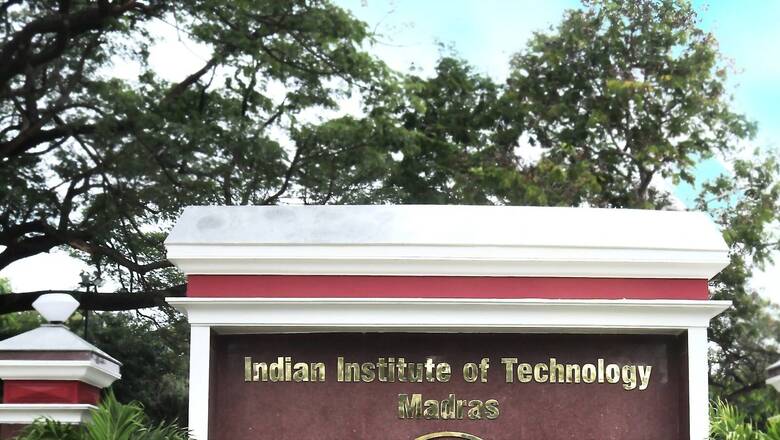
views
The Indian Institute of Technology (IIT) Madras researchers have developed a new approach for the more accurate detection of earthquakes. The proposed approach accurately detects the P-wave onset, especially in low signal-to-noise ratio (SNR) conditions, says the institute.
It offers a more flexible frequency band selection, by decomposing both lower and higher frequencies in each level, resulting in accurate detection, and allows the user to discard the noise in undesired time-frequency bands resulting in improved SNR, thereby resulting in accurate picking of P-wave onset.
Also, read| Free Online Courses That Can Help You Attain an IIT Certification, JEE Advanced Not Needed
“The proposed solution results in accurate detection and picking of the first waves in earthquake signals, which provide a small lead time and enable measures to save lives,” says IIT Madras. “This lead time, though appearing small, is sufficient to shut down the nuclear reactors, transportation such as metro and to park the elevators in high rise building at the nearest floor, among numerous other measures that can save countless lives,” it adds.
Through the approach, the accurate time of arrival of non-destructive waves of earthquakes will help in developing early warning signs and provide a lead time of approximately 30 seconds to 2 minutes depending on the distance of epicentre location from the monitoring site, till the destructive surface waves hit the ground, the institute claims.
The research was undertaken Kanchan Aggarwal, PhD Scholar, IIT Madras, under the guidance of Prof Arun K Tangirala, Department of Chemical Engineering, IIT Madras. The findings of their research were published in the reputed peer-reviewed open access scientific journal PLOS ONE. The research was partially funded by the Board of Research in Nuclear Sciences, an advisory body of the Department of Atomic Energy.
Read| JEE Advanced 2021 Qualifiers Eligible for More Courses as IITs Launch New-Age Programmes
Highlighting the practical applications of the research Prof Tangirala says, “The proposed framework is not necessarily limited to the detection of seismic events but is generic and can be used for fault detection and isolation in other domains as well. Furthermore, the framework can incorporate any predictive models including the Machine Learning and Deep Learning models, which will reduce the human intervention in the detection.”
“Information of P-wave arrival is crucial in determining other source parameters of the event such as magnitude, depth and epicentre location. Therefore, a solution to the P-wave detection problem that is robust, accurate and precise is essential in order to estimate the event details correctly and to reduce the damage caused by the earthquake or other triggered events,” says Aggarwal.
Read all the Latest Education News here

















Comments
0 comment